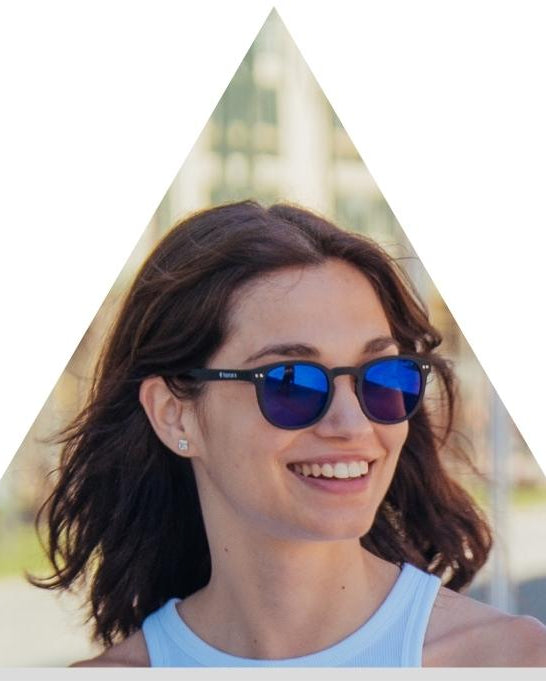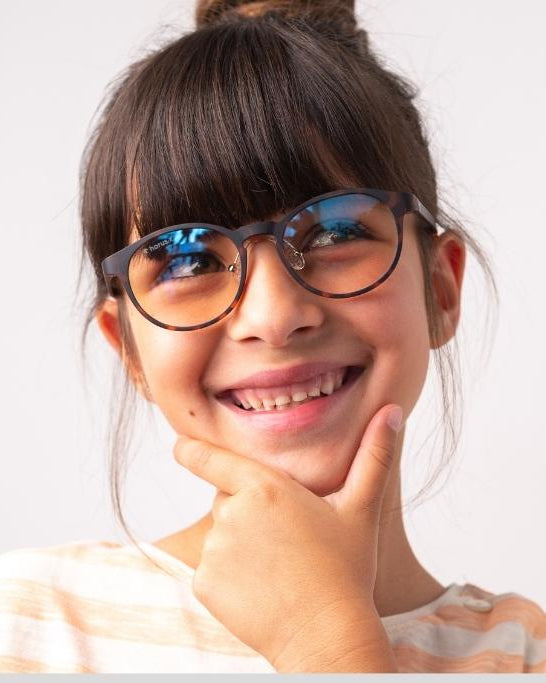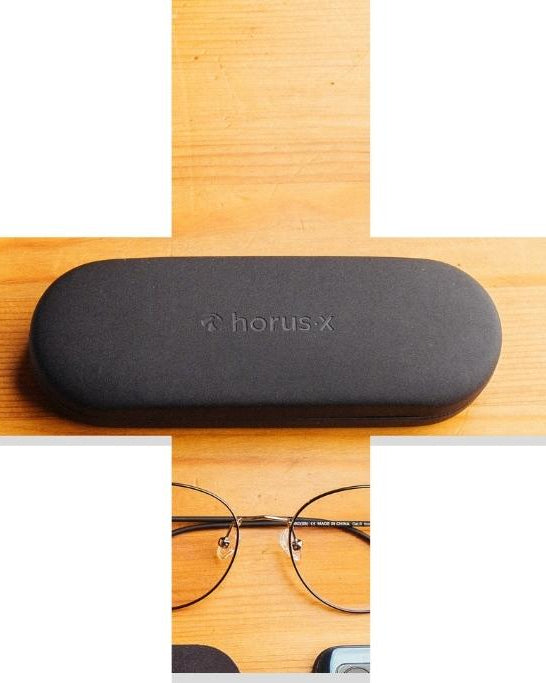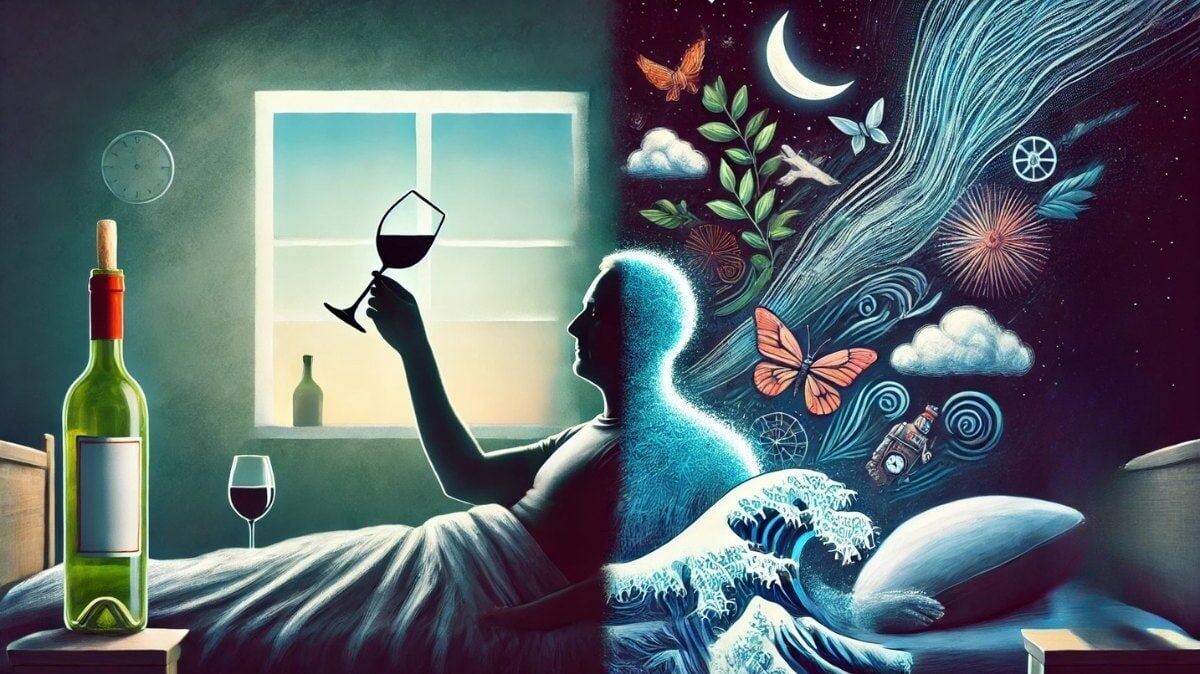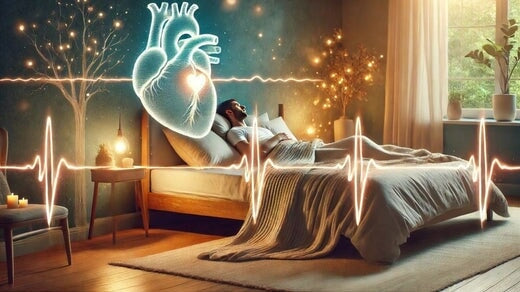Blue light and melatonin don’t mix. In fact, the production of melatonin is blocked by overexposure to blue light. To make matters worse, any change in the levels of melatonin in your body has serious effects.
Let’s look at the problems blue and other light’s impact on melatonin production has, and the best ways to preserve your sleep and your health.
Exposure to blue light reduces melatonin levels
Melatonin is a hormone that your body naturally produces in the pineal gland, to regulate your sleep cycle (also known as your circadian rhythm).
How does it work?
🌙 when the sun goes down, your body is clever enough to sense it, and starts producing melatonin to prepare your body for sleep. Unless you’re Batman.
☀️ The same, but in reverse. As soon as the sun rises, the pineal gland naturally decreases its melatonin production, releasing less into your bloodstream and preparing you for an active day of crime fighting… or playing games on your computer.
In summary, the main function of the pineal gland is to receive information about the natural light-dark cycle from where you are on the planet, and transmit this information to produce and secrete the hormone melatonin at night time. Pretty clever stuff.
But then blue light comes along, disturbing that balance and creating sleep disorders.
🔵 More than any other light on the spectrum, blue light, which is the most intense, will inhibit melatonin production and increase the time it takes to fall asleep, as well as potentially affecting the quality of the sleep you do manage.
The general effects of light on sleep
Unfortunately, any artificial light that’s strong enough will cause a reduction in melatonin production levels. If you get up at night to go to the bathroom (we’re not that young anymore, okay…) and turn on a light that uses a traditional light bulb, you can almost guarantee it will have an instantaneous effect on your melatonin levels.
That’s why you get that urge to try to not “lose your sleepiness” if you get up in the middle of the night.
Harvard sleep researcher Stephen Lockley tells us that even dim light can disrupt a person's circadian rhythm. A brightness of just 8 lux, a level brighter than most bedside lamps and about twice as bright as a nightlight, has an effect.

If you want to fall asleep fast and have a longer, more restful sleep; be careful of your light exposure before bed.
Protect yourself from artificial blue light to preserve your melatonin levels
Blue light is everywhere. It’s across all your electronic devices including smartphones, television, computers, and tablets. But it’s even emitted from other devices, like LED bulbs.
There are a few simple things you can put in place to optimize your melatonin production. They take a little set up and effort, but once you get used to them, you’ll notice an overall improved quality of life.
1. Reduce exposure to screens
The first thing to do is reduce the time you spend staring at a screen in the evenings, especially before bed.
We know how hard it is to turn off the latest episode of Andor, but you need to give your body enough time to produce melatonin before you try to sleep, and TV’s emit a lot of blue light. Otherwise, you’ll be tossing and turning for hours, just like Luke when he realized Leia was his sister.
Try to give yourself a little gap of 30 minutes between the time you turn off your screens (all screens – phones included!), and the time you go to bed.
2. Optimize your screens
If you’re truly unable to put down your screen before bed (or even, in it...) then we recommend activating night mode. This won’t filter 100% of blue light from your cell phone or TV, but it will help reduce it.
This mode is available on the vast majority of smartphones, tablets, computers, and even on some TVs. This could be either directly as an option in settings, or via anti-blue light applications.
And for those night time electronic bookworms, where possible, try and forgo your tablet in favor of a Kindle with digital ink that doesn’t emit blue light.

3. Use dimmer lights in the evening and at night
Modern lighting has far more harmful properties that can affect our sleep.
But there are fairly simple solutions to reduce the impact on your melatonin level. They are, however, also a bit more expensive. But your health is more important than money (if you have both…)!
Where possible, using dimmable lights can start preparing your body for a good night sleep, if you remember to lower the lighting in the evenings.
The idea is to make you light much warmer, as it helps put the brain into the right conditions and prepare your body for sleep.
At night, it’s even more important. If you’re getting older and like us, can no longer sleep through the night without our bladder bothering you, then try to avoid turning on your regular hallway light. Use a dim amber, or even red light instead to preserve your sleepiness (although make sure it’s not in any windows…. 😉)
4. Equip yourself with blue light blocking glasses with a powerful filter
Finally, the ultimate tool for navigating the brightest of corridors, while checking your apple watch, iPad and iPhone simultaneously, in the Matrix, is to slip on a pair of blue light blocking glasses. Just like Neo wears.
In addition to forming the good habits mentioned in the other bullet points, the extra protection of blue light glasses is integral to reducing the effects of light on the production of melatonin.
We recommend:
- The Gaming One: These glasses are perfectly designed for hardcore gamers who plan to play all of God of War Ragnarok without a break. They’re perfectly adapted to filter the wavelengths that impact melatonin production
- The Urban Anti-Blue Light Glasses: These provide slightly less coverage than our gaming glasses, but they look hella stylish when you’re sat on the sofa in your pajamas.

What about getting melatonin from supplements?
Good question! Melatonin is sold as a dietary supplement for sleep disorders, but we don’t necessarily recommend it. It’s still a hormone and you’re playing with fire a little if you think you can dose up on it without affecting the rest of your biological clock. If you really have trouble falling asleep, consult your doctor or try melatonin alternatives instead.
What about the impact of blue light on children?
Your eyes don’t fully develop until you reach your early twenties. Children are therefore even more sensitive to blue light. With the negative effects of overexposure, such as cognitive disorders, also being a risk factor at an early age, it’s a really bad idea to let them stare at the screen all day as it can effect their eye health and vision long term.
Final thoughts: blue light and melatonin
There’s nothing better than a dark and relatively cool bedroom for quality sleep. It doesn’t need to feel like Lex Luthor’s Ice palace, just a little below your body temperature is optimal. A slight change to your nightly routine, like turning off screens 30 minutes before bed, will really have a big impact long term. Light intensity has a major effect on our sleeping patterns and by becoming aware of this, it’s easy to put in place effective and natural solutions.
Other FAQs from the Horus X community
What type of light disturbs sleep?
All light disturbs sleep, as our bodies are calibrated to natural day and night cycles. But some lights are certainly more intense and dangerous than others, disrupting our sleep more wholly. Blue light exposure, for example, is the worst for this, as our brains are particularly sensitive to its effects.
How does blue light disturb sleep?
Blue light disrupts sleep because it blocks the production of melatonin – the sleep hormone.
What’s the best light color for falling asleep?
Ideally, none. But before going to bed, try to favor dimmer and more muted colors like reds and ambers. Lower light encourages the brain to create the ideal conditions for sleep. Then, when you turn off your light, make sure your bedroom is as dark as possible with no lights on for quality sleep. Unless you’re worried about what’s lurking in the corner…
How long should screens be off before sleeping?
Ideally, all exposure to screens and strong lights would be stopped about 3 hours before bedtime. Realistically though, we know that’s not really possible, and besides, House of the Dragon doesn’t air till 9pm.
Everyone is different. You’ll have to experiment with what works best for you, but aim for 30 minutes to 3 hours before bed as much as possible.



